Rock Against Racism started in England
during the late 70s as a mass movement of bands and music fans
taking a stand against racist violence and far right fascist
political groups. Hundreds of concerts, carnivals, rallies and
night club shows were organized. Punk, reggae and new wave bands
embraced the cause and became spokespersons for a progressive
multiracial popular culture.

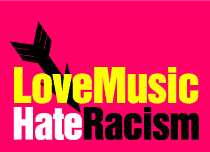

 Rock Against Racism USA
Rock Against Racism USA
In the early 80s Rock Against Racism came
to the US and was organized under the name of Rock Against Racism
USA as a network with a dozen chapters. From 1979 to1985 hundreds
of concerts, rallies and night club gigs were organized against
the Klan, police violence and the Regan republican right wing.
The Youth International Party, AKA the Yippies, were the core
of this network and their national underground newspaper "Overthrow"
served as it's news and communication vehicle.
From 1989 to 1996 a new network and organizing
formula was developed by music culture activists in the San Francisco
bay area to continue the RAR tradition. Sam Cohen AKA Fat Dog,
owner of Subway Guitars in Berkeley and Brian Webster, a RAR
USA activist from New York, using the name Rock Against Racism
and Voices for Choice, developed a format of coordinating the
promotion of simultaneous shows in many cities to celebrate progressive
holidays, such as Martin Luther King's birthday and International
Women's Day. They along with other key volunteers coordinated
the production of hundreds of RAR and Voices for Choice shows.
The goal was inspire a new generation of bands and music fans
to get politically involved and speak out for progressive causes
and human rights.
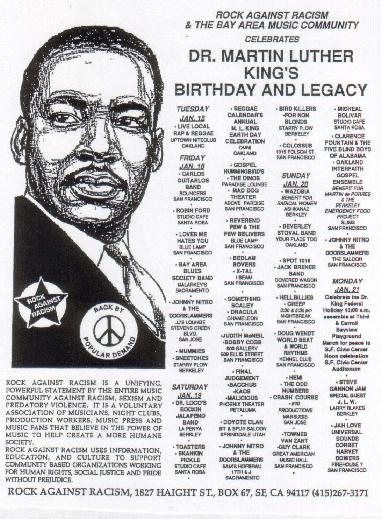
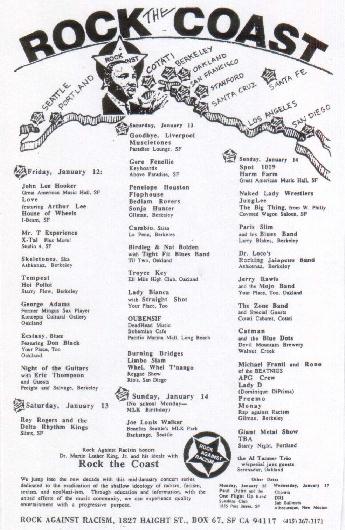
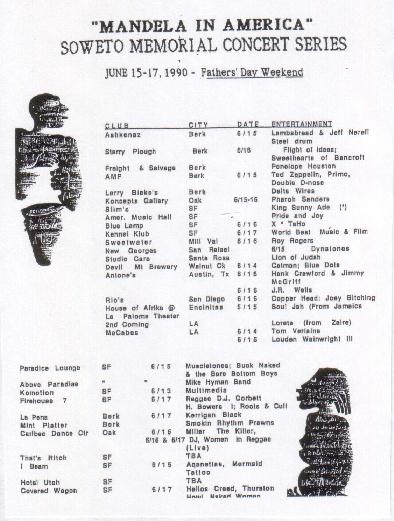
The formula got hundreds of bands playing
in hundreds of cities to participate. Promotional materials and
a large poster listing all shows worldwide were produced and
distributed for each mobilization. Bands were responsible for
their own booking and working with nightclubs and promoters to
make local arrangements for their show's participation in the
larger celebration. Flexibility and openness were the keys to
it's "big tent" success. Bands, managers, and club
owners were free to promote local women's and human rights groups,
or they could promote national groups and campaigns. Artwork,
logos, posters, buttons, flyers and petitions were provided.
Each band, promoter and club was free to use them at whatever
level was appropriate for their unique show. No financial commitment
was required. Any funds raised could be directed to a bands favorite
cause or a national group promoted by the network, such as the
Southern Poverty Law Center and N.O.W.
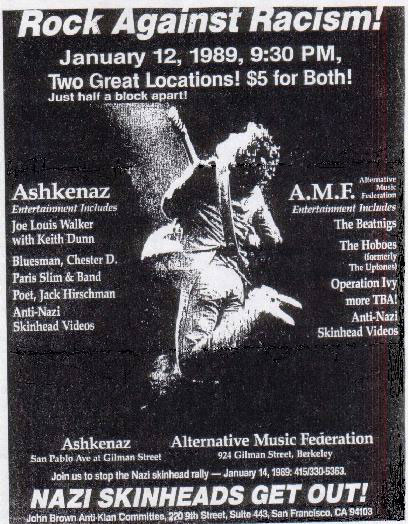
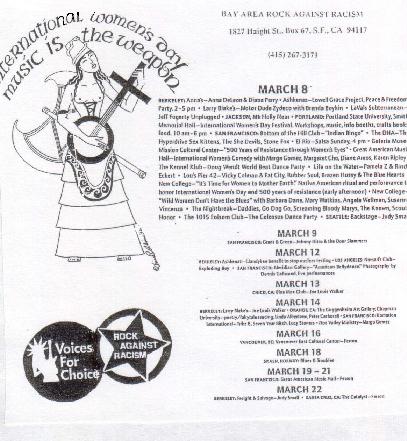
Rock Against Racism and Voices for Choice
is part of a rich history of artists and cultural workers at
all levels participating in mass mobilizations and democratic
campaigns in service to humanity. It's successful formula and
the boundless spirit of music it taps into, is available to this
season's people.
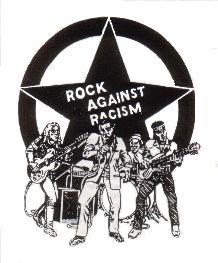
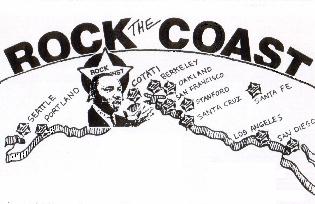
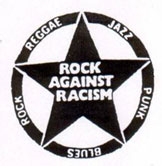 Return to Community Organizing Index
Return to Community Organizing Index

